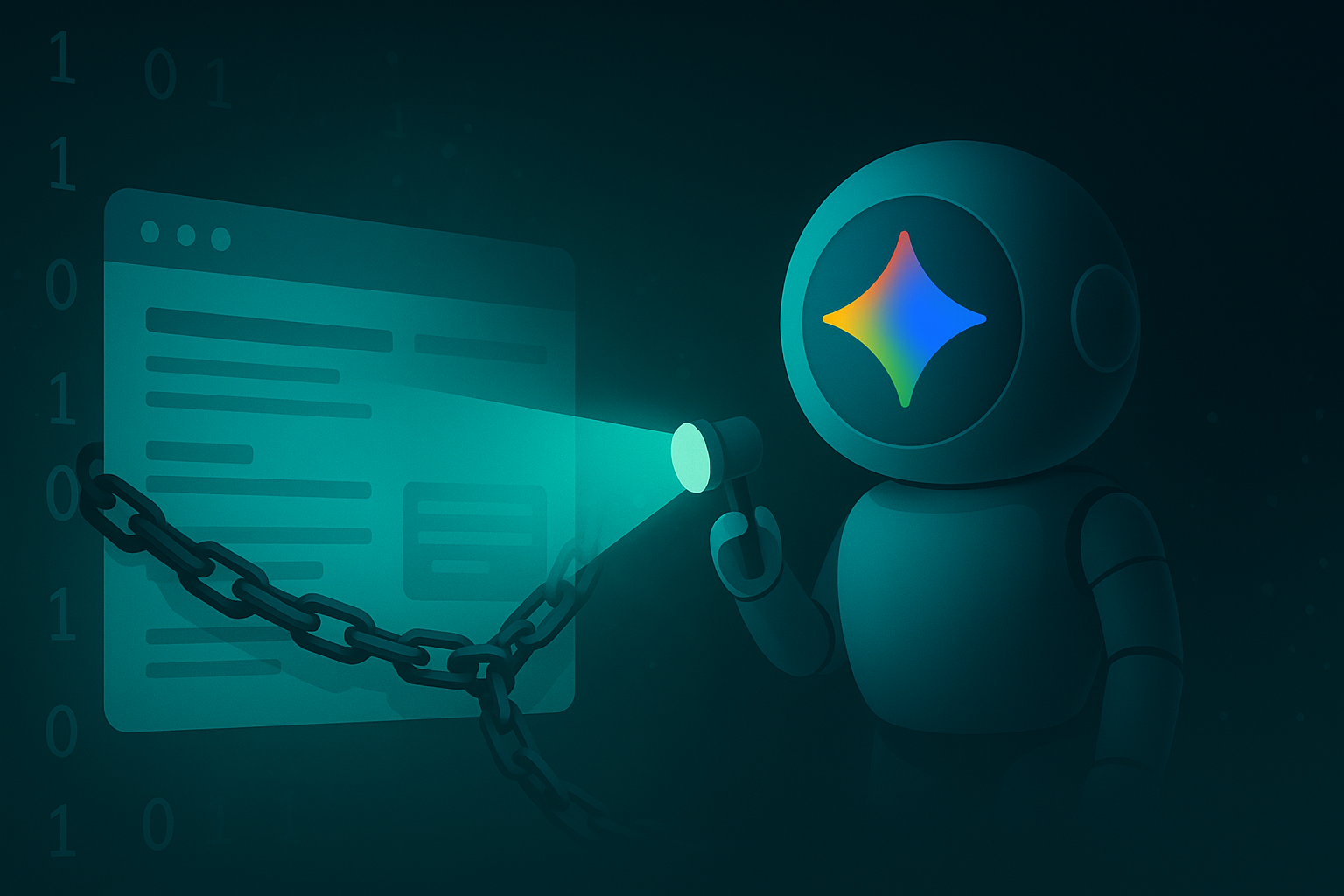The shift from search to answers
You’ve probably noticed it yourself. When you want quick, clear answers these days, you’re as likely to ask ChatGPT, Claude, or Perplexity as you are to “Google it”. The way people find information is changing fast.
This should be Google’s big moment. After all, it owns the world’s largest index of the web. But when you use Gemini, Google’s flagship AI, the experience often feels… off. Answers are sometimes dated, vague, or stuffed with the same SEO-flavoured fluff you’ve seen in search results for years.
So why is Gemini, backed by Google’s massive infrastructure, falling behind with less than ten percent of ChatGPT's AI search share? The short answer: it’s chained to a stale, polluted index that was built for the search era, not the AI era.
How Gemini really works
Gemini doesn’t crawl the web on its own. It borrows almost everything from Google Search. That means:
- Googlebot does the heavy lifting. Googlebot is the crawler that roams the web, discovers pages, runs the JavaScript, and puts everything into Google’s search index.
- Gemini consumes that index. When you ask Gemini about a website, it looks up what Googlebot has already stored. If the page hasn’t been crawled recently - or ever - Gemini is out of luck.
- Freshness depends on crawl cycles. Popular sites are re-crawled often. Niche or less active sites might only be updated every few weeks or months.
On the surface, this sounds efficient. But it means Gemini is stuck working with data that’s only as current as the last crawl.
The problem of stale content
In the age of AI, this is a serious handicap.
Imagine your company posts a major announcement - say, new pricing, new compliance documents, or a critical safety recall. Customers asking Gemini about your products the next day could still get old information if Googlebot hasn’t swung by yet.
That lag doesn’t just frustrate users. It damages trust. If an AI system can’t keep up with real-time events, people stop relying on it.
The problem of SEO pollution
There’s another issue. Google’s index is absolutely riddled with SEO slop: thin articles, keyword-stuffed listicles, affiliate filler pages, and recycled blog spam. These are the pages designed to game search rankings, not to help real people.
Because Gemini depends on the same index, it inherits all that noise.
So instead of sharp, factual answers, you often get summaries that feel like search-engine snippets - polished on the surface but hollow underneath. Gemini isn’t broken. It’s just built on a foundation optimised for clicks and ads, not answers.
A look across the fence
Now let’s compare this with how other AI systems, like GPT-5, explain their process.
When I ask GPT-5 how it fetches website content, here’s what it says:
- Two-step retrieval. First it checks an internal cache. If nothing’s there - or if the page looks new - it does a live fetch in real time.
- Rich data sources. It doesn’t just scrape text. It pulls in metadata, schema.org markup, JSON-LD, RSS feeds, even linked APIs like OpenAPI specs.
- Fallback strategies. If the page is hard to parse (say, a heavy JavaScript app), it looks for alternate sources.
- Transparency. GPT-5 will even show you what it “sees” on a page, so you know exactly how retrievable your content really is.
The difference is huge. Gemini is essentially summarising Google Search. GPT-5 is an actual AI agent - fetching, cross-checking, and adapting to the page in front of it.
Why this matters to users
For everyday users, the difference shows up as:
- Gemini answers that feel like old-school search: generic, SEO-tinged, sometimes out of date.
- GPT-5 answers that feel fresh and grounded: drawn from the latest content, with more context and less noise.
For site owners, the message is even sharper:
- With Gemini, your content might not show up until Googlebot re-crawls.
- With GPT-5 and others, your content can be fetched live and interpreted through your metadata, feeds, and structured data.
In other words: SEO alone won’t cut it anymore.
Why Google is falling behind
Google is trying to retrofit an old model - search indexing - into a new world that runs on AI retrievability.
Search indexing was built for a time when users typed keywords and clicked links. AI retrievability is built for a world where agents fetch, interpret, and synthesise answers instantly.
Gemini feels like a halfway house. It’s powerful, yes. But it’s still shackled to the same search-era incentives: ad-driven clicks and SEO signals.
Meanwhile, GPT-5, Claude, and Perplexity are designing their systems for the agentic web - where freshness, structure, and clarity matter more than keyword density.
What site owners need to do
If you’re responsible for a website, here’s the uncomfortable truth:
- Optimising for Gemini means optimising for an index that may be stale and noisy.
- Optimising for GPT-5 and others means designing your content to be retrievable by agents:
- Clear structure (headings, logical navigation).
- Semantic markup (JSON-LD, schema.org, OpenAPI).
- Accessible content (server-side rendering of key text, clean DOM).
Retrievability isn’t about chasing algorithms. It’s about making sure AI agents can find, understand, and reuse your content as answers.
The bottom line
Google might still dominate traditional search, but in AI search it’s already falling behind. The reason isn’t lack of resources or technology. It’s that Gemini is tied to a stale, polluted index that was never designed for the way AI agents consume content.
The winners in AI search will be the systems that can fetch, interpret, and synthesise content in real time - without being distorted by SEO slop.
And the winners among site owners will be the ones who optimise for retrievability, not rankings.

